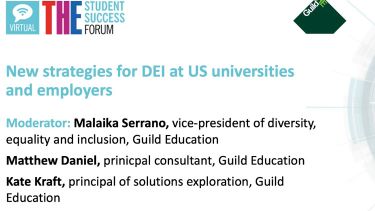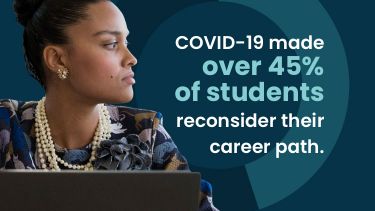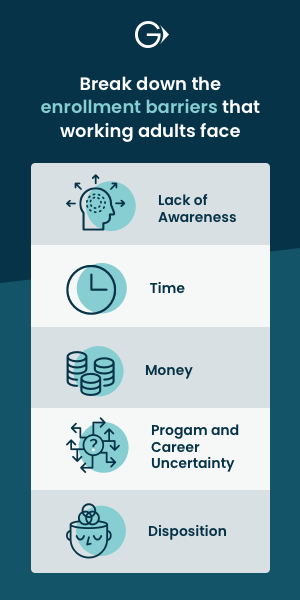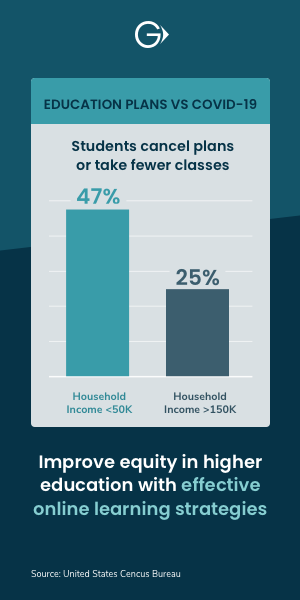
For online courses to work for adult learners, they need to offer value to both employers and employees
The Covid-19 pandemic has magnified the challenge of one-size-fits-all learning, says Guild Education’s senior principal for learning solutions, Lisa McIntyre-Hite. Adult learners are expected to be one of the fastest growing demographics in higher education in the next decade, but this group struggles with the lack of flexibility in traditional academia and finding courses that offer the skills they want. Institutional structures also often fail to recognise the expertise that these learners bring to the classroom.
Education consultancy Guild Education helps institutions establish adult-focused courses and matches employers with institutions to upskill and reskill their workforce while supporting students through hands-on coaching. “Guild connects Fortune 1000 companies to academic partners that are leaders in serving adult learners,” says Dr McIntyre-Hite.
Around 88 million adults in the US need upskilling or reskilling, Dr McIntyre-Hite says. This number is likely to increase as the US, and the world, grapples with pandemic-driven unemployment and economic depression. However, higher education – which could help those who are unemployed pivot to other careers and those in jobs improve their productivity – is often inaccessible or not relevant to the employer or employee. “Adult learners want meaningful learning that applies to their work and future goals and honours the experiences that they already bring,” she says. “Employers want ways to reskill and upskill, and retain their good employees.”
To this end, Guild Education works with universities and employers to refine their programmes so that they benefit companies and enrich learners while bringing more students into academia.
The Covid-19 pandemic has highlighted that personalised learning is the future, Dr McIntyre-Hite says. The stringent rules and the lack of flexibility in learning and education are major impediments to adult learning. “We need pathways for people to pause or speed up [their studies] if they have more time,” she explains. Additionally, working adults need “on ramps and off ramps” that allow them to take breaks from their studies and re-enter them later on.
Higher education’s digital transformation in the face of pandemic-related lockdowns is reimagining what is possible for adult learners, she says. “Few working adults are able to leave work [and] drive to a campus at the same time, same place every day.” But the online shift means institutions can “deliver high-quality education at scale that flexibly meets the needs of working adults”, Dr McIntyre-Hite says.
But these courses need to offer a premium service. “This has been the biggest disconnect post-Covid,” Dr McIntyre-Hite says. “Going online is step one, but truly creating an online learner experience that is engaging and motivating, with all the wraparound support – that is where I see institutions spending the most work.”
Times Higher Education and Guild Education’s webinar “Creating a pipeline of lifelong learners with digital education” will take place on 16 March 2021 at 13.00 EST. Click here to register.






